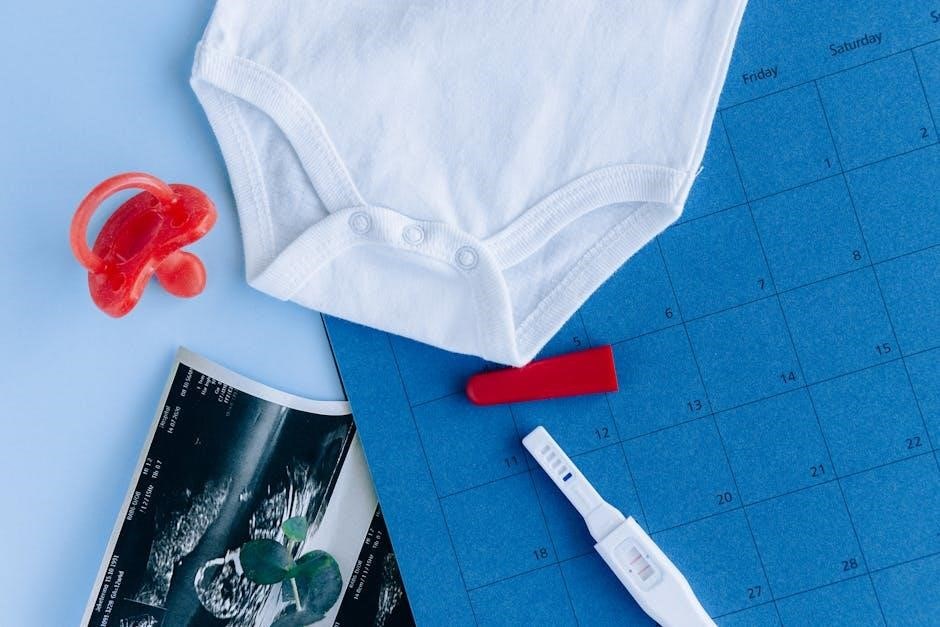The New Jersey CDL Manual is the official guide for professional drivers‚ covering state and federal regulations‚ licensing requirements‚ and safe driving practices. Published by the NJMVC‚ it ensures compliance with both state and federal standards‚ essential for obtaining and maintaining a Commercial Driver’s License in New Jersey.
Overview of the NJ CDL Manual
The NJ CDL Manual is a comprehensive guide detailing requirements‚ regulations‚ and best practices for commercial drivers in New Jersey. It covers CDL classes‚ endorsements‚ medical standards‚ and vehicle safety. Available in multiple languages‚ the manual also includes state-specific traffic laws and federal regulations. Published by the NJ MVC‚ it is essential for drivers preparing for the CDL exam and maintaining compliance.
Importance of the Manual for Commercial Drivers
The NJ CDL Manual is crucial for commercial drivers as it provides essential information on state and federal regulations‚ safety protocols‚ and licensing requirements. It serves as a study guide for the CDL exam‚ covering topics like endorsements‚ vehicle inspections‚ and medical standards. Adherence to the manual ensures legal compliance and promotes safe driving practices‚ making it indispensable for professional drivers in New Jersey.

CDL Classes in New Jersey
New Jersey offers three CDL classes: A‚ B‚ and C‚ each catering to different vehicle types and weight ratings. Class A covers combination vehicles‚ Class B for heavy straight trucks‚ and Class C for small passenger vehicles or hazardous materials transport.
Class A‚ B‚ and C CDLs: Definitions and Requirements
Class A CDLs are for combination vehicles exceeding 26‚001 lbs‚ requiring a trailer over 10‚001 lbs. Class B CDLs operate heavy straight trucks‚ like buses or dump trucks. Class C CDLs cover smaller passenger vehicles or hazardous materials‚ often requiring endorsements. Each class demands specific skills and knowledge‚ with eligibility starting at 21 years old and a valid NJ driver’s license.
Choosing the Right CDL Class for Your Career
Choosing the right CDL class in New Jersey depends on your career goals and the type of vehicles you intend to operate. Class A is ideal for long-haul trucking or combination vehicles‚ offering high demand and versatility. Class B suits those interested in construction or local transportation‚ while Class C is perfect for passenger or hazardous material transport. Consider job stability‚ salary expectations‚ and work environment when selecting your CDL class.

Eligibility and Requirements for a New Jersey CDL
To obtain a New Jersey CDL‚ applicants must meet age‚ residency‚ and medical requirements. You must be at least 21 years old for interstate commerce or 20 for intrastate. A valid NJ driver’s license‚ proof of residency‚ and medical certification from a DOT-approved examiner are required. Additional documentation and a vision test are also necessary.
Age‚ Residency‚ and Medical Requirements
To apply for a New Jersey CDL‚ you must meet specific eligibility criteria. Applicants must be at least 21 years old for interstate commercial driving or 20 for intrastate operations. Proof of New Jersey residency and a valid driver’s license are required. Additionally‚ a medical examination by a DOT-certified professional is mandatory‚ and applicants must meet federal vision and physical standards to ensure safe driving capabilities.
Application Process and Necessary Documentation
To apply for a New Jersey CDL‚ complete the application form and submit it to the MVC. Required documents include proof of residency‚ identity‚ and Social Security number. A valid medical examiner’s certificate is also needed. Applicants must select their CDL classification and any endorsements‚ then pay the applicable fees. All documents must be originals or certified copies‚ and the application must be submitted in person at an MVC office.

Study Materials and Resources
The NJ CDL Manual is available at MVC agencies or by calling (609) 292-6500. It provides detailed study materials for CDL exams and endorsements.
Where to Obtain the NJ CDL Manual
The New Jersey CDL Manual is available at any MVC agency or by calling (609) 292-6500. It can also be downloaded from the MVC website in English or Spanish.
The manual is free and provides comprehensive details on CDL requirements‚ classes‚ endorsements‚ and testing procedures‚ ensuring drivers are well-prepared for licensure and safe operation of commercial vehicles in New Jersey.
Additional Study Guides and Online Resources
Beyond the NJ CDL Manual‚ drivers can access online resources like practice tests and study guides on the MVC website. Platforms such as CDL Exam Prep 2022-2023 offer detailed test questions and explanations. Additionally‚ interactive study tools and AI chat support are available to help drivers prepare effectively for their exams and master the material.

CDL Application and Testing Process
The CDL application and testing process in New Jersey involves submitting required documents‚ passing a written exam‚ and completing a skills test to ensure compliance with MVC standards.
Steps to Apply for a CDL in New Jersey
To apply for a CDL in New Jersey‚ submit required documents‚ including proof of identity‚ residency‚ and medical certification‚ to the MVC. Pass a vision test and complete a written knowledge exam. Schedule and pass the skills test‚ which includes vehicle inspection‚ basic maneuvering‚ and road driving. Ensure all steps align with MVC guidelines for a smooth application process.
Understanding the CDL Written and Skills Tests
The CDL written test assesses knowledge of traffic laws‚ safety rules‚ and vehicle operation. The skills test evaluates practical abilities‚ including vehicle inspection‚ basic maneuvers like backing and turning‚ and on-road driving. Both tests are designed to ensure drivers meet federal and state standards‚ with the manual serving as the primary study resource to prepare effectively for these assessments.

CDL Endorsements and Restrictions
CDL endorsements and restrictions modify driving privileges. Common endorsements include H‚ N‚ P‚ S‚ and T. Restrictions limit certain operations. Understanding these is crucial for legal compliance.
Types of Endorsements (H‚ N‚ P‚ S‚ T‚ etc.)
CDL endorsements are specialized certifications added to a license‚ enabling drivers to operate specific vehicles. Common endorsements include H (hazardous materials)‚ N (tank vehicles)‚ P (passenger vehicles)‚ S (school buses)‚ and T (double/triple trailers). Each endorsement requires additional testing and allows drivers to handle specialized cargo or vehicles‚ ensuring they meet safety and regulatory standards for their intended operation.
How to Obtain and Maintain Endorsements
To obtain CDL endorsements in New Jersey‚ drivers must pass specific written tests and background checks‚ depending on the endorsement type. For example‚ the H endorsement requires a federal background check. Applications must be submitted through the NJ MVC‚ and additional fees may apply. To maintain endorsements‚ drivers must adhere to renewal requirements and stay compliant with federal and state regulations.

Test Preparation and Tips
To excel on the NJ CDL exam‚ focus on mastering general knowledge‚ vehicle inspection‚ and road skills. Regular study and practice tests ensure readiness.
Key Topics to Focus On for the CDL Exam
The NJ CDL exam covers general knowledge‚ combination vehicles‚ air brakes‚ tank vehicles‚ hazmat‚ doubles/triples‚ passenger vehicles‚ school bus‚ vehicle inspection‚ and road skills. Mastering these sections ensures readiness. Understanding New Jersey traffic laws and safety guidelines is also crucial. Focus on pre-trip inspections‚ braking techniques‚ and load management to excel in both written and practical tests.
Practical Tips for Passing the Skills Test
Focus on pre-trip inspections‚ ensuring brakes‚ tires‚ and mirrors are checked. Practice basic vehicle control‚ such as backing and turning‚ in a safe area. During the on-road test‚ maintain consistent speeds and use signals. Pay attention to lane positioning and following distance. Complete post-trip inspections to demonstrate thoroughness. Regular practice and familiarity with the vehicle will enhance your performance.

Vehicle Inspection and Safety
The NJ CDL Manual emphasizes pre-trip and post-trip inspections‚ covering brakes‚ tires‚ and mirrors. It ensures adherence to safety standards for responsible and safe commercial driving practices.
Pre-Trip and Post-Trip Inspection Requirements
The NJ CDL Manual outlines detailed pre-trip and post-trip inspection requirements to ensure commercial vehicles are roadworthy. Drivers must check brakes‚ tires‚ lights‚ and mirrors before and after trips. These inspections are critical for safety‚ compliance‚ and preventing potential accidents on the road.
Safety Guidelines for Commercial Vehicles
The NJ CDL Manual emphasizes strict safety guidelines for commercial vehicles‚ including adherence to traffic laws‚ proper load securement‚ and regular maintenance. Drivers must maintain safe following distances‚ use seatbelts‚ and avoid distractions. The manual also covers hazard management‚ emergency procedures‚ and the importance of staying alert to ensure road safety for both drivers and other road users.
State-Specific CDL Regulations
The NJ CDL Manual outlines New Jersey’s specific regulations‚ including intrastate commerce definitions‚ weight restrictions‚ and local operating requirements. These rules ensure compliance with state laws.
New Jersey Traffic Laws and CDL Compliance
Understanding New Jersey traffic laws is crucial for CDL holders‚ as they must comply with both state and federal regulations. The NJ CDL Manual details specific rules‚ including speed limits‚ right-of-way laws‚ and weight restrictions. Violations can result in penalties‚ fines‚ or license suspension. Adhering to these laws ensures safe operation of commercial vehicles and maintains compliance with CDL requirements.
FMCSA Regulations and Their Impact
The Federal Motor Carrier Safety Administration (FMCSA) regulations are critical for CDL holders in New Jersey. These rules‚ adopted by the state‚ govern hours of service‚ vehicle inspections‚ and driver qualifications. Compliance ensures safety and avoids penalties. The NJ CDL Manual outlines these regulations‚ emphasizing their importance in maintaining CDL compliance and operational safety standards.
Frequently Asked Questions
Common questions about the CDL process include manual availability‚ application steps‚ required documents‚ fees‚ and class distinctions. These are addressed in detail within the NJ CDL Manual.
Common Questions About the NJ CDL Process
Drivers often inquire about manual availability‚ application steps‚ required documents‚ fees‚ and class distinctions. These questions are addressed in detail‚ ensuring clarity on the process and requirements for obtaining a New Jersey CDL. Additional inquiries include endorsement specifics‚ medical requirements‚ and testing procedures‚ all of which are thoroughly covered in the official NJ CDL Manual.
Miscellaneous Topics and Clarifications
The NJ CDL Manual includes updates like the 2023 Skills Test Modernization‚ rewriting key chapters. It’s available in multiple languages‚ including Spanish and Tagalog. The MVC provides customer support for inquiries. Additional resources like study guides and online tools aid preparation. Clarifications on state-specific traffic laws and FMCSA regulations ensure compliance‚ supporting drivers in understanding and meeting all requirements effectively.




























































